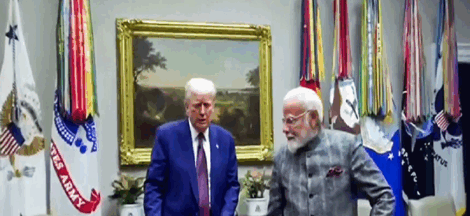By Nilanjan Banik and Philip Stevens
Come 21-26 May 2018, representatives from all over the world will gather at Geneva for the annual World Health Assembly meet. As one of the prominent members of the World Health Organization (WHO), India shares a pivotal role in setting the global health agenda. WHO’s work has never been more important to address serious and evolving international health threats. It is only a matter of time before there is another global influenza pandemic to match the devastating outbreak of 1918,and as recent outbreaks of Ebola and Zika have shown, new and deadly diseases can emerge at any time, without any warning.
As a UN organisation to which almost every country in the world belongs, WHO should make strengthening national health systems and coordinating defences against transnational disease its priority. Unfortunately, large parts of the agenda for this year’s meet are dedicated towards discussion about how to dilute the intellectual property (IP) protections that drive discovery of new medicines. Even in India, a popular perception is patents increase price of medicines. However, the premise that patents lead to higher drugs price is unfounded. Patents are not relevant to the vast majority of medicines typically prescribed by doctors in developing countries. On the contrary, a lax patent regime may dis-incentivize medical innovation and may in fact delay introduction of cutting edge drugs that may save a million lives. At present, not only less number of newer drugs are hitting the market but more number of antibacterial drugs are becoming antibiotic resistant. The number of new antibacterial drugs approved in the US came down from 33 between 1985 and 1999 to 13 between 2000 and 2014. In Europe, an estimated 25,000 lives are lost because medicines are no longer effective.
The worry is that WHO will fail to handle the next inevitable global pandemic, leading to needless loss of life. Take the organisation’s response to the West African Ebola crisis of 2014. An expert panel convened by Harvard Global Health Institute and the London School of Tropical Medicine criticised WHO for its “catastrophic” delay in declaring a public health emergency. Funding has also come down: WHO spent just 5.7 per cent of its 2014-15 budget on disease outbreaks, a 50 per cent drop on the previous two years. WHO’s core budget, paid by member governments, fell from US$579 million in 1990 to a feeble US$465 million this year.
For India, we have more than one reason to get worried. It is not the patents but other factors that may result in higher drugs price. For instance, higher price of medicines is because of factors such as higher tariffs on imported medicines, inefficient supply chain management, cartelisation (lack of competition) among drug manufacturers, dysfunctional public health systems, and unethical medical practices.
India is one of the few countries in the world that still impose 10 per cent tariffs on pharmaceutical import. Even the availability of essential generic medicines is poor in public sector facilities (ranging from 41.3 per cent to 23.2 per cent), which are the primary source of free medicines for a majority of India’s low-income population. A study, examining the availability of five generic drugs in 129 public health facilities across 17 states in India found that several medical facilities, particularly in rural areas, had no availability of medicines. There are issues related to asymmetric information – doctors are more informed about any disease than a patient is and hence the importance of ethical medical practice. Unfortunately, as evidence suggests, not only some private hospitals violate the condition of providing free treatment to the poor but at times indulge in unethical medical practice such as inflating medical bills for the patients. Many poor people are also uneducated, and hence cannot challenge any wrongdoing by big corporate hospitals (such as taking to court).
The high cost of medicines hurts poor people the most. In India, 85 per cent of the population is not covered under any health insurance scheme, implying a major portion of our expense goes towards medicines and related healthcare services. Even if one is insured, and god forbid, one of the family members has a disease such as cancer, kidney, or heart failure, one can understand the ordeal the family goes through. As much as 80 per cent of Indians earn less than 1 lakh 20 thousand rupees per year, and treatment for cancer or dialysis in a single year can cost anything between 4 lakhs to 6 lakhs rupees a year.
Ergo, given the scale of today’s health challenges, it is not clear how repeating a tired debate about patents will help. Instead, the world at large will gain from having a discussion around as how technology can be made all-pervasive related to healthcare services and reducing price of medicines. India, for instance, takes pride in producing a large number of software professionals. Can we not develop software platforms and applications that will run on smartphones for monitoring, and prescribing medicines for chronic diseases such as diabetics, asthma etc? There are too few doctors and clinics in any less developed economies, and hence the discussion about making good use of technology. A narrow and divisive focus by WHO on IP may tick political boxes, but it does nothing to improve health and will only lead to more unproductive debate. (IPA Service)
Nilanjan Banik is professor at Bennett University, India.
Philip Stevens is director of Geneva Network, a U.K.-based research organization focusing on international trade and health issues.
The post World Health Organisation Is A Missing Goalpost appeared first on Newspack by India Press Agency.

